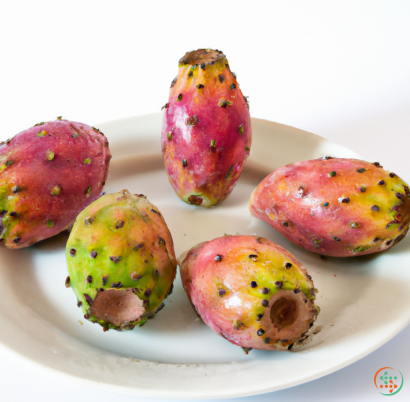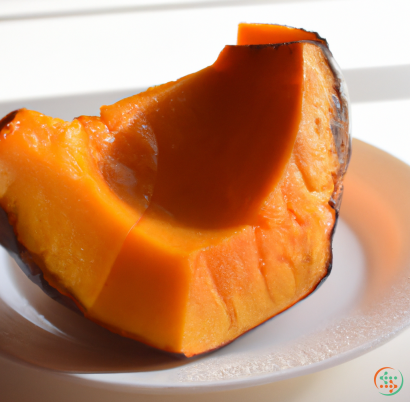Sugar Substitute (saccharin)
and what health impacts it has
What is Saccharin?
Saccharin is a sugar substitute. It is used primarily to sweeten food and beverages. It is much sweeter than sugar and contains fewer calories, making it an attractive alternative for those looking to reduce their caloric intake or maintain their diabetic glucose levels. Saccharin has been used as a sugar substitute since the late 1800s and is now one of the most widely used artificial sweeteners.
Saccharin is a white, crystalline powder that has a slight bitter aftertaste. It is made from derivatives of coal tar, although it can also be made from yeast. Saccharin is around three hundred times sweeter than regular sugar but has no nutritional value.
Saccharin is used primarily to sweeten foods, including soft drinks, baked goods, canned fruit, yogurt, jams, and jellies. Saccharin used to be used in some toothpastes, although it is no longer used in this capacity in the United States. It is also used in a variety of medicinal products, such as cough syrup and throat lozenges. Saccharin is also used as an ingredient in some over-the-counter medications, such as laxatives and antacids.
Do Saccharin and other artificial sweeteners have any health impacts?
In general, experts believe that the health effects of artificial sweeteners are not completely known but that most people can consume small amounts without any negative effects. The United States Food and Drug Administration (FDA) has concluded that saccharin can generally be used safely if consumed in moderation.
One of the main health concerns associated with saccharin is its potential to cause cancer, especially bladder cancer. This link was first identified in laboratory rats in the late 1970s. In response to this potential risk, the FDA required products with saccharin as an ingredient to carry a warning label. However, extensive research conducted since then has failed to show any causal link between regular consumption of saccharin and the development of cancer in humans.
In addition, some studies suggest that consuming saccharin may alter the gut microbiome in a way that could contribute to obesity and impaired glucose tolerance. However, further research is needed to understand the potential long-term effects of consuming saccharin on the human body.
Another potential health concern is that saccharin does have some slight diuretic properties. As such, consuming high doses of saccharin may lead to excessive urination, which could lead to dehydration if not properly managed.
Finally, some people are sensitive to artificial sweeteners, such as saccharin. These individuals may experience headaches, stomach aches, and general malaise after consuming saccharin.
Conclusion
Saccharin is an artificial sweetener used to sweeten food and beverages. It is some three hundred times sweeter than sugar, contains fewer calories, and has no nutritional value. While experts generally believe that the health effects of artificial sweeteners are not completely understood, most people can consume saccharin in small amounts without any negative effects. However, consumers should be aware of potential health concerns, such as its potential to alter the gut microbiome, and be aware of potential symptoms of sensitivity, such as headaches and stomach aches.
Saccharin: A Sweet Journey from Laboratory to Dinner Plate
Sugar adds a sweet touch to many popular foods and drinks, as well as providing a pleasing texture and adding a flavorful dimension to baked goods. But, growing awareness of the health hazards associated with high levels of table sugar consumption has led many consumers to look for an alternative sweetener with fewer calories and a less intense flavor. Saccharin is one of the most common substitutes for sugar and has an interesting background story of its own. In this blog post, we will explore how saccharin is created and its journey from the laboratory to the dinner plate.
What is Saccharin?
Saccharin (C_7H_5NO_3S) is a non-nutritive, artificial sweetener that has been around since 1879 and is approximately 300-400 times sweeter than table sugar. It has a slightly bitter aftertaste and is most often found in foods such as beverages, candy, and cookies. Saccharin is a common additive in reduced-calorie processed foods as well as popular diet sodas and energy drinks.
How is Saccharin Made?
Saccharin is produced through chemical synthesis; an industrial process requiring highly trained personnel and advanced materials. The raw materials used to make saccharin are formaldehyde and toluene. The formaldehyde is first reacted with the toluene, forming benzaldehyde. The benzaldehyde is then subjected to sulfonation, resulting in a mixture of sulfonated derivatives. The mixture is then neutralized with soda ash and water to form a white powder. This powder is then filtered, dried, and packaged as saccharin.
Production of Saccharin in the U.S.
The vast majority of saccharin for commercial use is produced in the United States. The two largest producers are Spherix Inc, located in Beltsville, Maryland, and Roquette America, Inc., located in Lumberton, North Carolina. Each company produces a variety of saccharin products including powders, granules, and liquid solutions.
Distribution of Saccharin
Once the saccharin has been produced in the United States, it is then distributed to food manufacturers and retailers where it can be purchased in bulk. Unlike table sugar, saccharin is typically packaged in small individual servings, such as the pink packets that are available at most restaurants.
The sweetener is typically delivered to the consumer in one of two ways: either in a pre-packaged form, or as a special ingredient in a food or beverage product. When ordered in bulk, whether from a distributor or directly from a manufacturer, saccharin is shipped in bags, boxes, or drums depending on the quantity ordered.
Journey from Laboratory to Dinner Plate
Saccharin’s journey from production to consumer purchase is quite captivating. Beginning with the production of the sweetener in the laboratory, it then is transported to the food provider, where it is packaged into the familiar pink packages or prepared for baking into the desired dessert. The packages are then shipped to the local grocery store shelves or direct to the consumer's doorstep. Finally, when a consumer has chosen to purchase something sweetened with saccharin, they take it home, where they enjoy it at their dinner table.
Benefits of Saccharin
The main benefit of using saccharin as a sugar substitute, over regular sugar, is that it doesn’t have any calories and is much sweeter, so you don't need to use as much. As such, saccharin can be used to reduce the amount of calories and carbohydrates in food, which makes it an ideal sweetener for individuals on a low-calorie or low-carbohydrate diet. Furthermore, it has been proven to help reduce cravings, particularly cravings for sweets, which makes it useful for weight loss.
Risks Associated with Saccharin
As with any product containing added sugars and calories, there are potential risks associated with the long-term use of saccharin as a sugar substitute. Some studies have suggested that saccharin may cause intestinal issues, such as abdominal discomfort or cramps, in certain individuals. Excessive use of saccharin has also been linked to a heightened risk of urinary tract cancer. As with all potential food-related health risks, the best practice is to consult with a licensed physician or nutritionist before making any changes to your dietary intake.
Conclusion
Saccharin is an artificial, non-nutritive sweetener that has been around since 1879 and is approximately 300-400 times sweeter than table sugar. It is used as a sugar substitute in many processed and diet products and has been proven to help reduce cravings, particularly cravings for sweets.
The journey of saccharin from production in the laboratory to consumption of a prepared product on the dinner plate is captivating; beginning with the production of the sweetener in the laboratory, it then is transported to the food provider, where it is packaged, shipped to the local grocery store shelves or direct to the consumer's doorstep, and finally when a consumer has chosen to purchase something sweetened with saccharin, they take it home, where they enjoy it at their dinner table.
Though there are potential health risks associated with the long-term use of saccharin as a sugar substitute, it remains a popular choice due to its zero-calorie value and sweet flavor. It's important to note, however, that saccharin should not be used as a replacement for a healthy diet and exercise regimen. As always, it’s best to consult with your doctor or nutritionist prior to making any changes to your dietary intake.
| Iron | 0.04 mg |
Daily Value 0.018 g
|
| Potassium | 0.004 grams |
Daily Value 4.7 g
|
| Sodium | 0.428 grams |
Daily Value 2.3 g
|
| Zinc | 0.01 mg |
Daily Value 0.011 g
|
| Total Sugars | 85.2 grams |
per 100g
|







